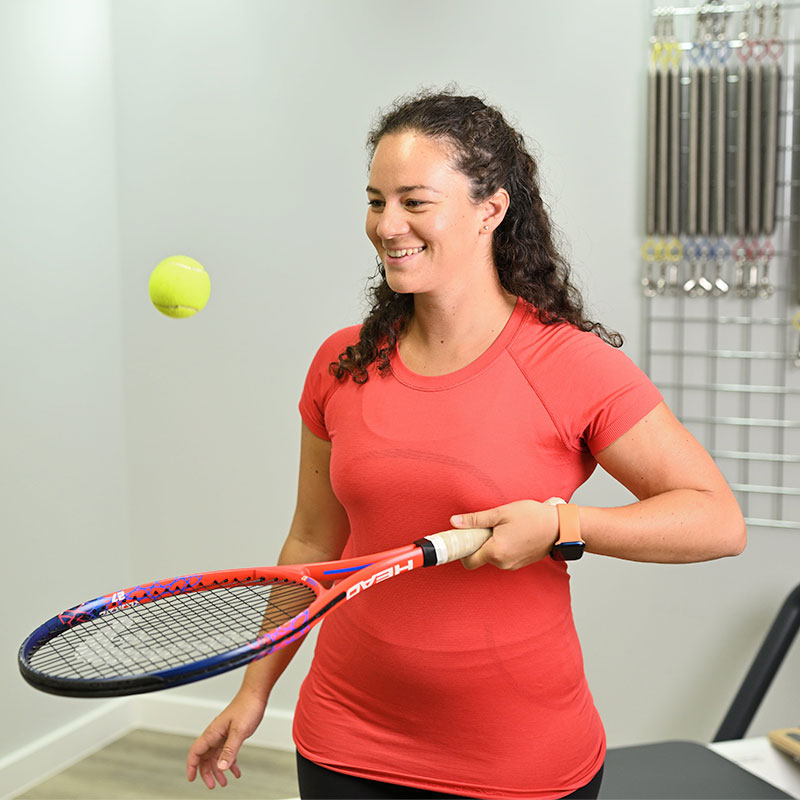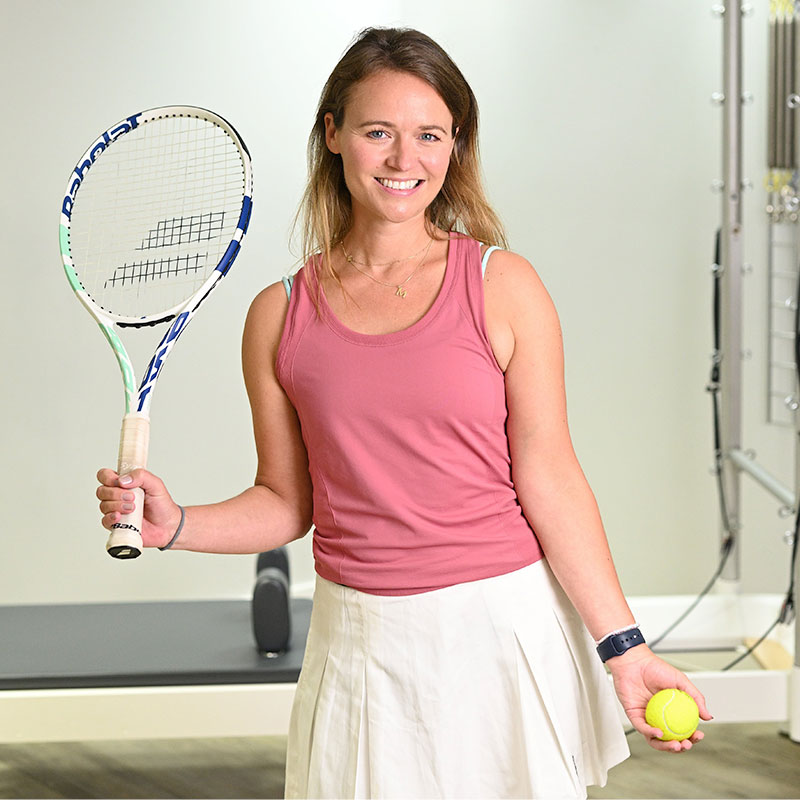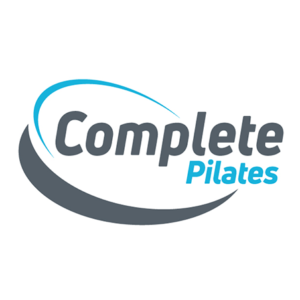Pilates for cancer rehabilitation at Complete Pilates
A cancer diagnosis will change your life, and the impact of the various treatments and medications can take a significant toll on your health. If you’re living with cancer, or currently in remission, Physio-led equipment Pilates can be a powerful tool to help you rebuild your strength, energy and focus, whilst you are undergoing treatment or trying to meet other goals.
At Complete Pilates, we offer specialised 1:1 rehabilitation Pilates for those living with cancer and cancer survivors. The aim of these sessions is to improve your overall well-being and physical capability. Research has shown that exercise during and after cancer treatment can help maintain fitness, strength and body weight, improve your mental well-being and fatigue and reduce side-effects of treatment. Exercise can also reduce your risk of certain cancers returning. Pilates is particularly ideal, as it’s a form of low-impact exercise which means it puts less strain on your joints and muscles, and can be modified to suit your body and how you’re feeling on any given day.
We understand that exercise is generally the last thing on your mind if you have been diagnosed with cancer. However, our Pilates sessions are designed with you, and your treatment plan in mind; our aim is to allow you to reconnect with your body during a time when it may feel like an unfamiliar place, so your class will always be conducted at your own pace.
At Complete Pilates, we offer 1:1 cancer rehabilitation Pilates in London in person or virtually online, as well as our On Demand education and exercise course that you can follow along in your own time at home.
Our London studios are conveniently located in Chelsea, Angel and the City. At each of our locations, we have specially trained clinical Pilates instructors in oncology exercise rehabilitation, such as Pinc and Steel certification.
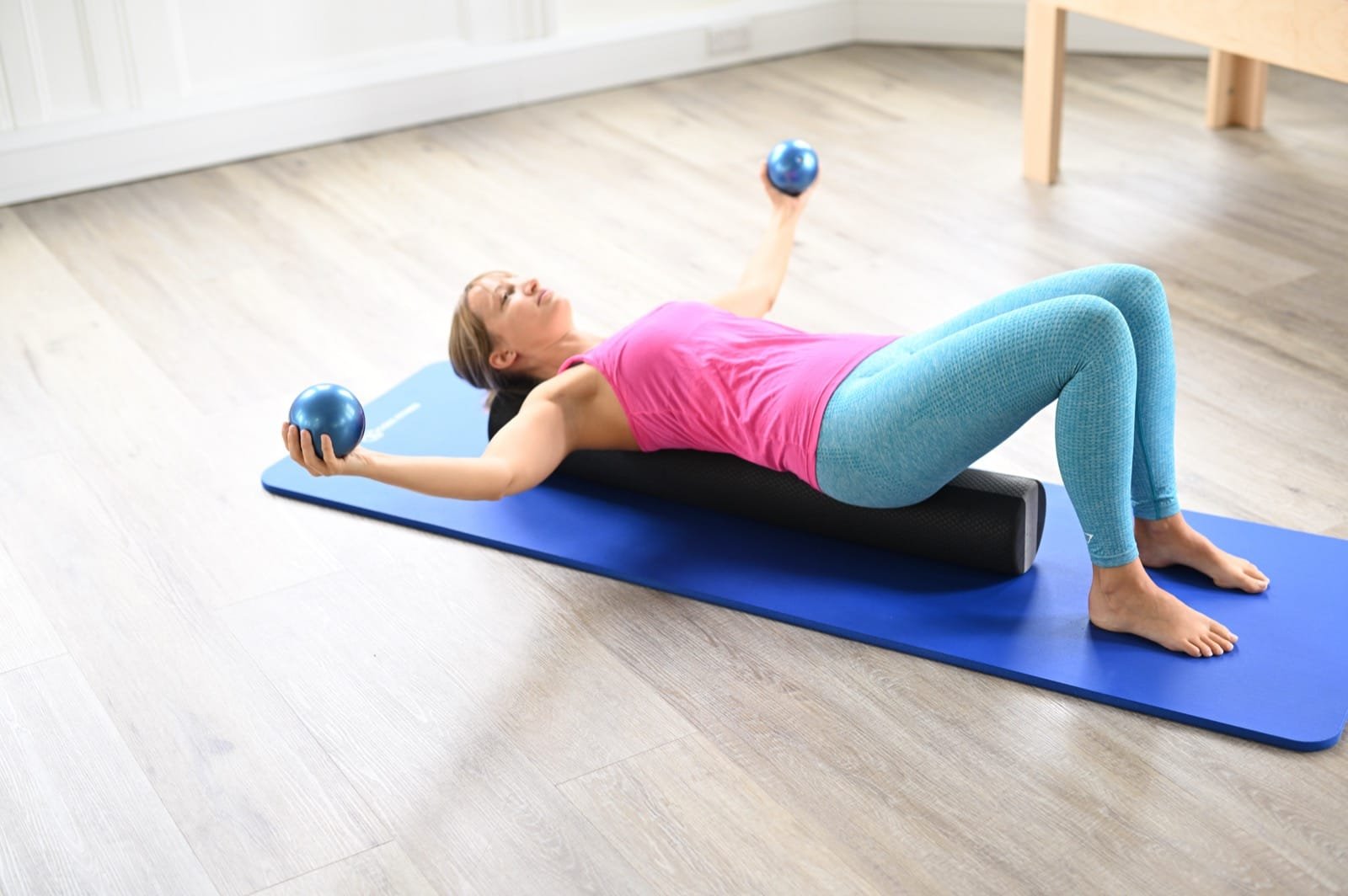
Join us for cancer rehabilitation Pilates in London
Chelsea, Fulham
First Floor
321 Fulham Road
Chelsea, London
SW10 9QL
London City
Lower ground floor
37-39 Lime Street
London
Angel, Islington
Unit 226, Business Design Centre
52 Upper Street
The Angel, London
N1 0QH
What is cancer rehabilitation Pilates?
Cancer rehabilitation Pilates is for anyone who is undergoing cancer treatment or in remission.
During your class, our Pinc & Steel Clinical or Pink Ribbon Pilates instructors will assess your movement and gain an understanding of your symptoms, treatment side-effects, treatment plan and goals. From there, they’ll help guide you through movements designed to help you reach your goals, whether that’s improving strength and mobility, helping with breathing techniques and day-to-day endurance or just having time to reconnect with your body in a supportive environment.
We understand that cancer can be unpredictable, and recovery can take time; after each session, we’ll always discuss any progress made, as well as any new goals or objectives to work towards and how best to manage the next session.
We recommend starting with 1:1 in-person sessions. All our sessions use the full suite of equipment, including the reformer, the trapeze table, the wunda chair and the ladder-barrell.
If you’re unable to make it to one of our studios, we offer 1:1 online classes and our On Demand Pilates during cancer treatment course.
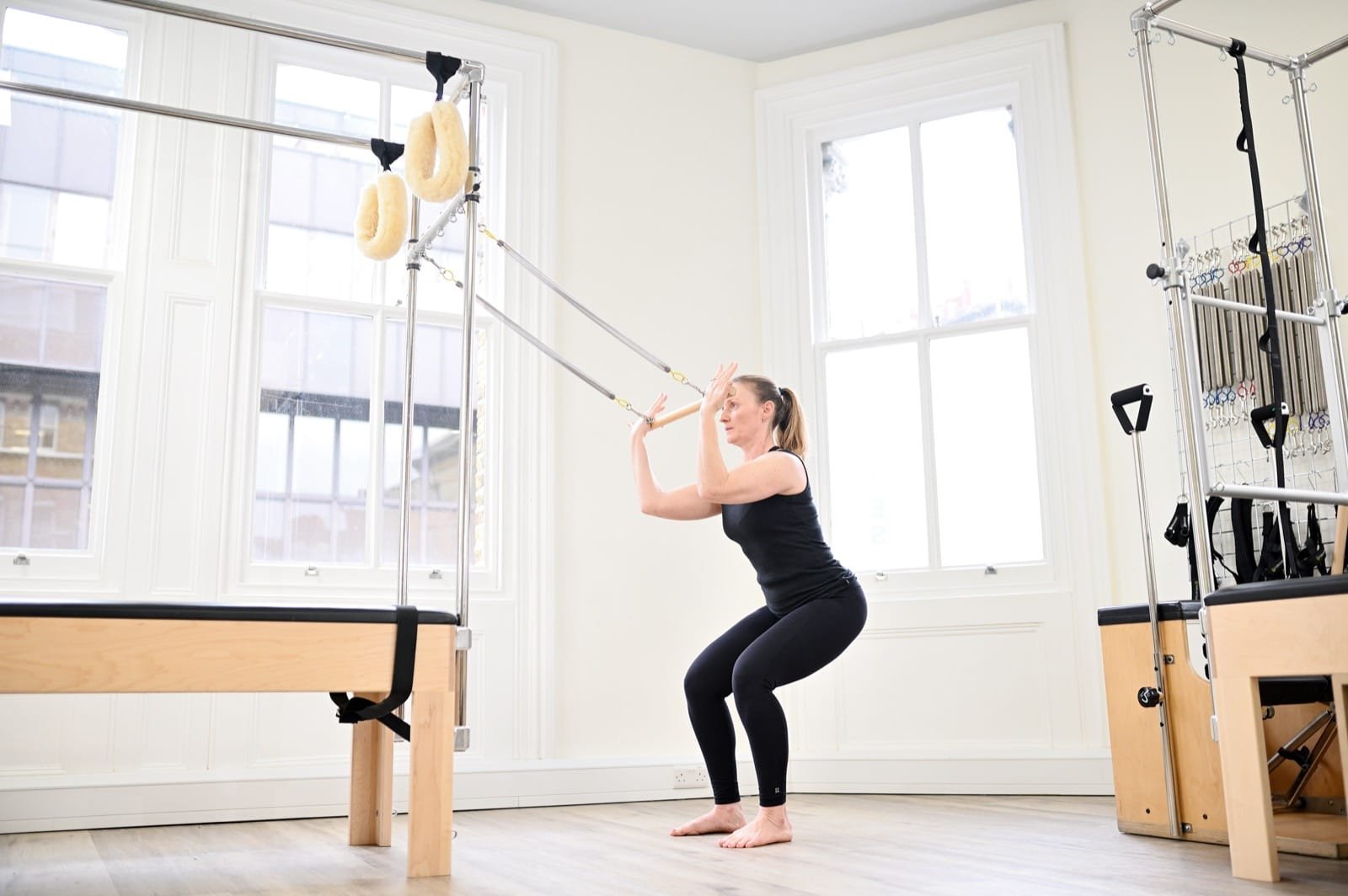
Why should you do Pilates during cancer treatment or recovery?
Studies have consistently shown that exercise can offer positive benefits to both those living with cancer, while also preventing recurrent cancer in survivors. One study showed that regular exercise can help to prevent the recurrence of breast cancer, while another 7-year study (across 1000 stage 3 colon cancer patients) showed that those who exercised regularly had a 31% decrease in cancer recurrence.
Other benefits include:
- Reduced pain – If you’ve spent a lot of time sedentary during your treatment, our classes can get you gently moving again and reduce any pain you may be experiencing.
- Improved mood – Pilates can be a great way to encourage mindfulness and relaxation, as well as improving overall well-being during this stressful period.
- Increased strength & flexibility – our classes help you build up your strength gradually. Most people will feel weaker after ongoing treatments. Our Pilates classes can help you gradually feel like yourself again.
- Reconnect you with your core & pelvic floor – this is often affected with treatment and can lead to other problems. Pilates is well known for improving core and pelvic floor awareness and strength.
- Reduced breathlessness – breathing disorders affect 10-30% of otherwise healthy people and is commonly seen after stress and trauma. One of Pilates core principles is breath. This means that part of your focus will be on this and will help you find control over your breathing again.
- Reduced fatigue – this means being tired, physically, mentally and emotionally. Regular activity has been shown to ease your symptoms of fatigue.
- Improved body confidence – because you will be able to do more, and take control over your body again, you will feel better about your body.
- Improving your resilience – recovering from cancer is more than just the medical treatment. You also want to ensure that your quality of life once your treatment has finished returns. Exercise can help you return to your usual activity and feel more like yourself.
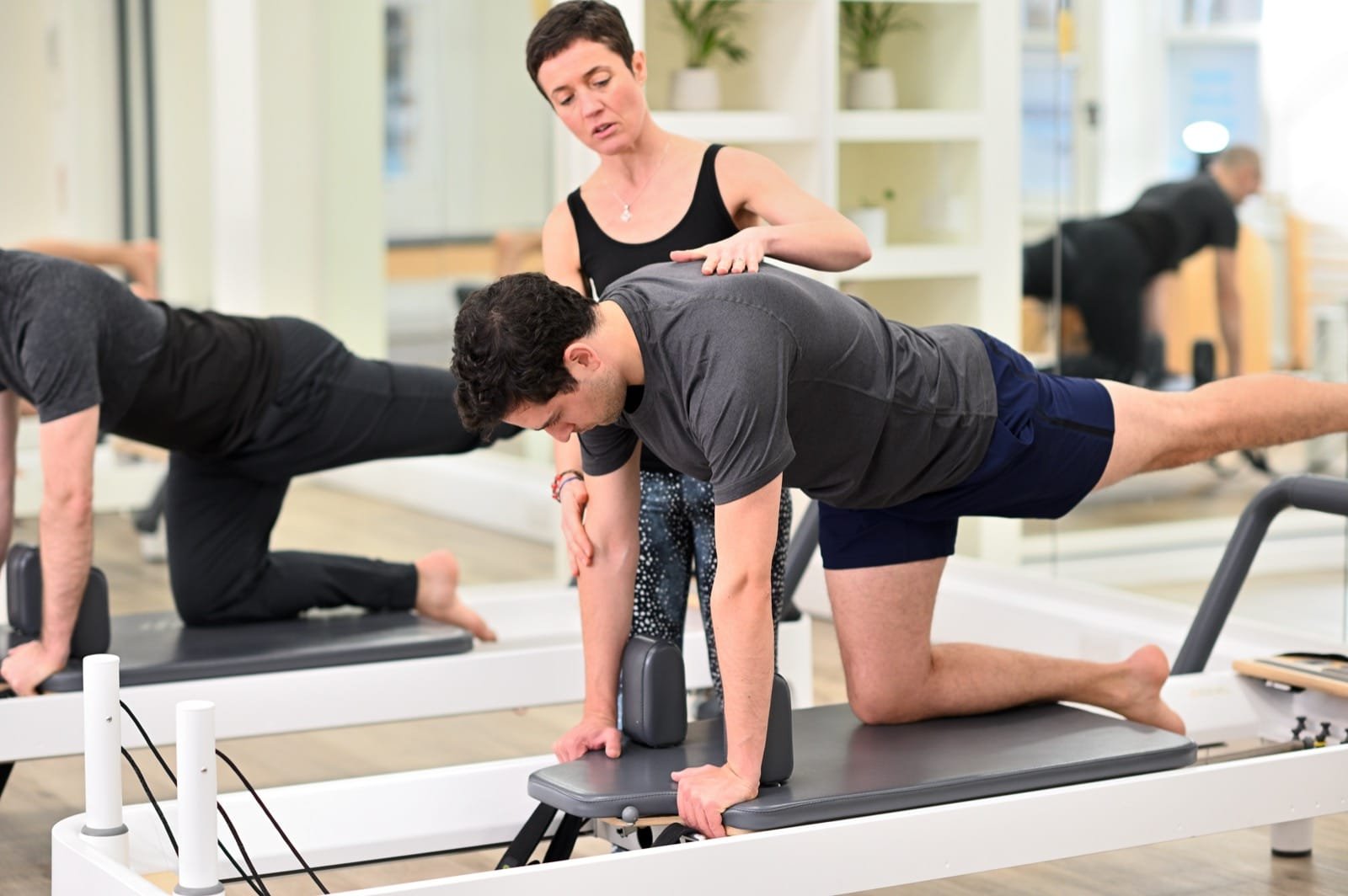
Choosing the right cancer rehabilitation for you
For those looking for cancer rehabilitation Pilates, we offer:
- 1:1 in person Pilates classes
- 1:1 online Pilates classes
- On Demand Pilates for cancer rehabilitation course
Our On Demand course includes an online 1:1 session with one of our cancer rehabilitation specialists, as well as a series of exercise classes to follow along with at home, and education masterclasses that cover the benefits of exercise during cancer treatment, fatigue management and how to help manage the side effects of treatment.
Our classes are aimed to support you as an individual and therefore tailored specifically to you, your body and your goals. In person classes are fantastic for hands-on exercise support and close supervision and modification of your exercises. If you’re unable to get to one of our studios for any reason, we can help support your exercise programme from the comfort of your home. Whatever you choose, you’ll know you’re being supported by our cancer rehabilitation specialists.
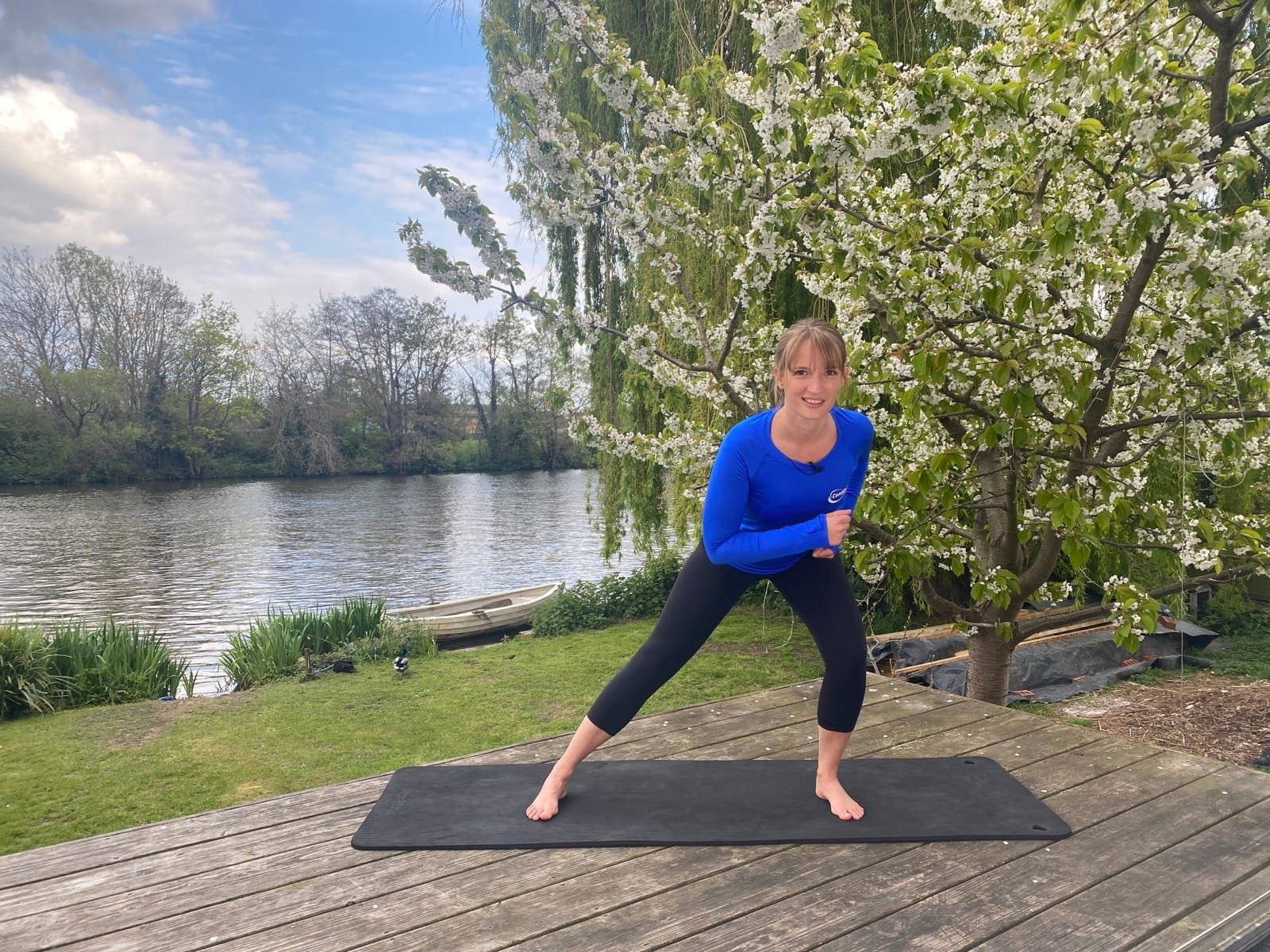
Start cancer rehabilitation Pilates today
We understand that those navigating cancer treatment or those in remission might be unsure about exercising.
If you have any questions about participating in Pilates during cancer treatment or while in remission, we welcome you to contact our team who will gladly speak to you further about our cancer rehabilitation classes and if they’re right for you.
We run our 1:1 cancer rehabilitation classes in London in Chelsea, Angel and the City. Our online and On Demand classes can be accessed from anywhere, at any time that is convenient for you.
Frequently asked questions
Simply put yes. However, we do recommend passing on your oncologists or doctors details so that we can talk with them. It is also important to be honest about any current limitations, surgeries and treatment that you may still be undergoing. This is so that we can ensure to modify any exercise to fit you. Pilates, particularly equipment based Pilates, is a great low-impact exercise to choose. The springs are assistive so can help you move and will enable you to do more whilst controlling your movements. Think hydrotherapy without the heat and the pool!
All new clients begin at Complete Pilates with a 1:1 class so we can assess your body and goals. For those undertaking Pilates for cancer rehabilitation, we recommend participating in further 1:1 sessions so you and your instructor can understand your more specific needs and energy levels. If you wish to join one of our 3:1 group classes, your instructor can discuss this with you and make sure it’s the most safe and effective choice.
Yes. Exercise has been shown to help reduce symptoms such as chemo brain and choices such as equipment Pilates can be modified to suit you on any given day. That said, it’s always best to speak to us, your doctor, or someone else involved in your care before taking on any new exercise programme.



